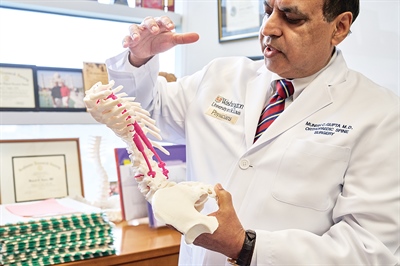 Wednesday, October 23, 2024
Wednesday, October 23, 2024
Collaboration between orthopedic and neurosurgery specialists, new technology and new techniques have significantly improved treatment for complex spinal problems. And a special program designed by WashU Medicine specialists helps people scheduled for surgery to correct spinal problems learn how they can play an important role in their recovery.
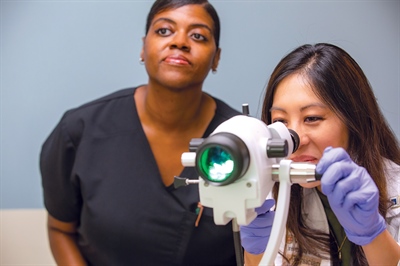 Wednesday, October 23, 2024
Wednesday, October 23, 2024
For many of us, family planning includes a host of questions. For some, that list of questions also includes: Are there health limitations that might prevent us from having a family—and if so, what help is available to help us achieve our goal? And for those who face life-changing health events, the need to answer such questions may come sooner rather than later—if they want to preserve the option of having biological children in the future.
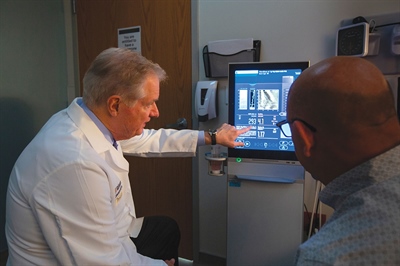 Wednesday, October 23, 2024
Wednesday, October 23, 2024
Although its importance is often unappreciated, the liver has far-reaching effects on almost every organ system in the body. And its singular ability to regenerate makes living-donor transplantation a life-altering option for those in whom this vital organ is failing. With 10,000 people waiting on the transplant list at any point during a given year, there are more people waiting than the number of donor livers available.
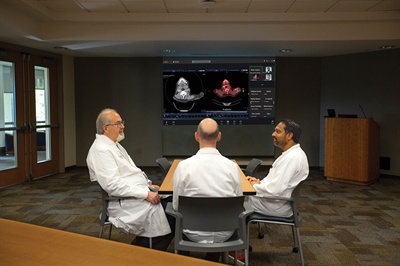 Wednesday, October 23, 2024
Wednesday, October 23, 2024
A tumor board is made up of a group of physician specialists from a number of medical subspecialties: surgeons, oncologists, radiologists, radiation oncologists, geneticists and other specialists. This team meets regularly to discuss the cases of people with cancer. Siteman Cancer Center, based at Barnes-Jewish Hospital and Washington University School of Medicine, has multiple tumor boards, each one organized around a specific cancer site.
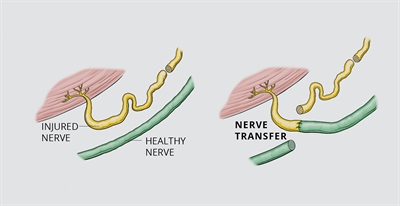 Wednesday, October 23, 2024
Wednesday, October 23, 2024
Plastic surgery and neuroscience advance through trauma. Severe burns, car accidents, war – these and other tragedies push plastic and reconstructive surgeons beyond the limits of collective wisdom to change patients’ lives. WashU Medicine plastic and reconstructive surgeon, Susan Mackinnon, MD, has dedicated her life to developing, refining and expanding a surgical technique called nerve transfer.
 Wednesday, October 23, 2024
Wednesday, October 23, 2024
When a woman receives the support and care she needs during her pregnancy, labor and delivery— and through postpartum—everyone benefits: the mother, the baby, the family, the community in which they all live. When health care, economic resources, healthy food and community support are difficult to access—and racism and bias are present—the pregnant woman’s health and life are in danger, as well as the lives of her infant, family and community.
 Wednesday, October 23, 2024
Wednesday, October 23, 2024
Chronic pain can be caused by a number of conditions, including nerve damage, muscle pain, injuries that don’t heal properly, arthritis, cancer and sickle cell disease. Identifying the source of someone’s pain can be a trial-and-error process. Even if two people have the same source of pain, they may experience different pain symptoms. In some instances, chronic pain can be relieved through an intravenous (IV) infusion of lidocaine.
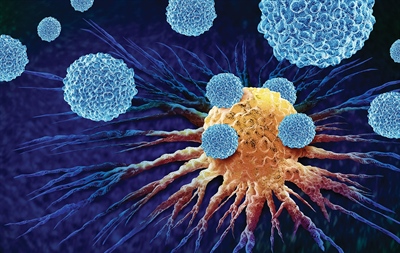 Wednesday, October 23, 2024
Wednesday, October 23, 2024
With the green light from the FDA, a new immunotherapy treatment is now available to treat certain adult patients with metastatic melanoma, an aggressive skin cancer that has spread to other parts of the body. Called tumor-infiltrating lymphocyte (TIL) therapy, this option is for people with metastatic melanoma that can’t be treated with surgery and that has continued to grow and spread despite already having been heavily treated with other approved strategies.
 Wednesday, October 23, 2024
Wednesday, October 23, 2024
There lies a paradox in sleep. Its apparent tranquility juxtaposes with the brain’s bustling activity. The night is still, but the brain is far from dormant. During sleep, brain cells produce bursts of electrical pulses that cumulate into rhythmic waves—a sign of heightened brain cell function. But why is the brain active when we are resting?
 Wednesday, October 23, 2024
Wednesday, October 23, 2024
Taking a single pill that combines medications targeting cardiovascular disease-related conditions was shown long ago to lower the risk of death from such causes, including heart attacks and strokes. The concept of using such “polypills” to prevent and treat atherosclerotic cardiovascular disease was introduced nearly 25 years ago. Still, many years and a body of supportive research later, use of such pills remains low throughout the world.
 Wednesday, January 31, 2024
Wednesday, January 31, 2024
Study the anatomy of a human heart, and you’ll notice there are four chambers and four valves that work sequentially to move blood into the heart and then out into the body. As the heart contracts and relaxes, its valves work in a set order, opening and closing to ensure that blood flows in one direction. Advances made in cardiology and heart surgery now allow specialists to repair or replace any of the heart valves using a variety of techniques, including minimally invasive surgery.
 Tuesday, January 30, 2024
Tuesday, January 30, 2024
Many of us are familiar with the most common strategies for treating cancer: surgery, chemotherapy and radiation therapy. But in the past two decades, more targeted treatments have been developed. One such innovation, called theranostics, uses specially engineered radioactive tracers in combination with advanced imaging techniques, to not only find and map cancer cells throughout the body, but also serve as a beacon, lighting a path that cancer-destroying drugs can follow.
 Tuesday, January 30, 2024
Tuesday, January 30, 2024
Many middle-aged and older women get mammograms every one to two years to screen for breast cancer. When specialists read these mammograms, they assess breast density along with signs of cancer, comparing a woman’s previous mammograms to her most recent one to look for worrisome changes. But some changes are difficult to detect by eye. A study by researchers indicates that previous mammograms hold underutilized data that could help identify women at high risk of breast cancer.
 Tuesday, January 30, 2024
Tuesday, January 30, 2024
Pelvic organ prolapse – which occurs when the uterus, bowel, bladder or top of the vagina “drops” or bulges into the vagina – affects one in four women in their 40s and half of all women in their 80s, according to the American College of Obstetricians and Gynecologists. The condition can cause serious discomfort and affect everything from a woman’s ability to work, exercise and control her bowel and bladder function. When treated, it can result in the resolution or minimization of symptoms.
 Tuesday, January 30, 2024
Tuesday, January 30, 2024
Robotic technology is being used in the operating room as a tool during surgery. The technology gives transplant surgeons additional flexibility, dexterity, articulation, visualization and stability, all of which are used to retrieve kidneys from living donors and transplant them into people in need of a new kidney. Pulmonologists rely on those same robotic qualities to perform biopsies of small tumors located deep inside the lungs.
 Tuesday, January 30, 2024
Tuesday, January 30, 2024
For the past six years, the Anesthesiology Control Tower (ACT) has provided a watchful eye over 60 operating rooms at Barnes-Jewish Hospital, serving nearly 1,000 patients per week. Like the air traffic control tower, the ACT provides additional sets of eyes to help anesthesia clinicians head off and troubleshoot rare but potentially life-threatening perioperative events that can occur unpredictably.
 Tuesday, January 30, 2024
Tuesday, January 30, 2024
For people who have experienced a heart attack or stroke, taking a daily aspirin has been shown to prevent a second one. Yet, despite aspirin’s low cost and its clear benefits in such scenarios, fewer than half of people worldwide who have had a heart attack or stroke take the medication, according to a new study led by researchers at Washington University School of Medicine in St. Louis and University of Michigan.
 Tuesday, January 30, 2024
Tuesday, January 30, 2024
More than 7 million people in the U.S. live with a movement disorder called essential tremor. Because essential tremor can make everyday tasks—shaving, writing, driving a car—difficult if not impossible, living with essential tremor presents significant challenges. Treatment for essential tremor includes medication, a surgical option called deep-brain stimulation and a newer, non-surgical therapy known as high-intensity focused ultrasound.
 Tuesday, January 30, 2024
Tuesday, January 30, 2024
Belief in the connection between music and the body and mind’s well-being dates back millennia, but the genesis of modern music therapy occurred after World War II, when physicians and nurses witnessed the positive emotional and physical response recovering veterans had to music. Since those observations were made, music therapy has developed into an accredited, allied health profession that uses interventions to address the physical, emotional, cognitive and social needs of groups or individuals.
 Tuesday, January 30, 2024
Tuesday, January 30, 2024
The platelets in our blood are best known as clotting agents, but they are great healing agents, too. Platelets don’t just clot. They also help structures to regrow and remodel. Washington University orthopedics specialists at Barnes-Jewish Hospital make the most of platelets’ healing qualities through platelet-rich plasma therapy. The best candidates for this procedure are people who have arthritis, especially mild arthritis.
 Monday, January 29, 2024
Monday, January 29, 2024
Living unhoused increases the risk for developing mental illness and infectious and non-infectious disease. Hospital to Housing employs a long-range, multi-pronged approach designed to help people with complex, interrelated needs find housing and achieve better health. From its pilot phase in 2019 to its current expansion phase, the program has helped more than 70 people.